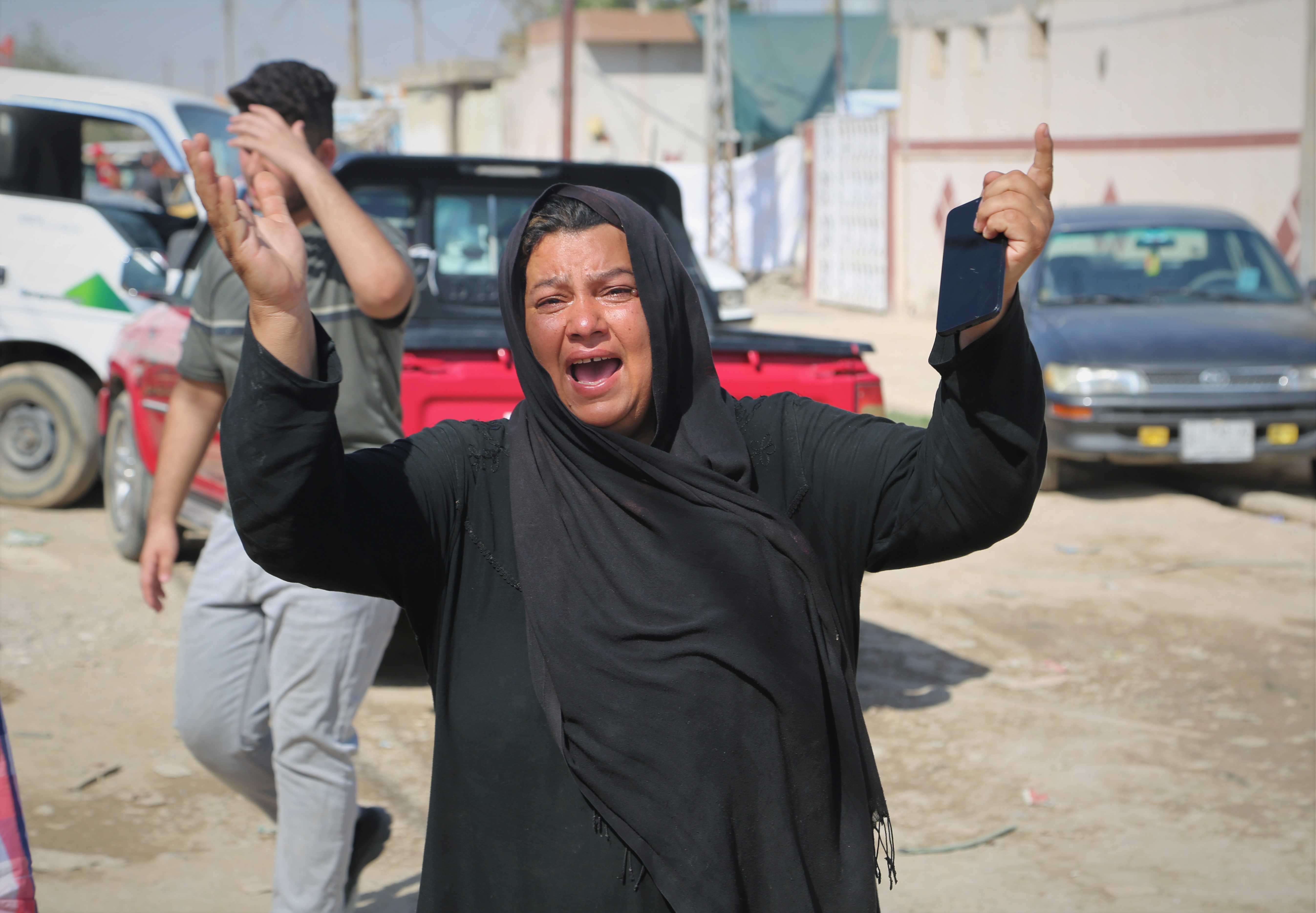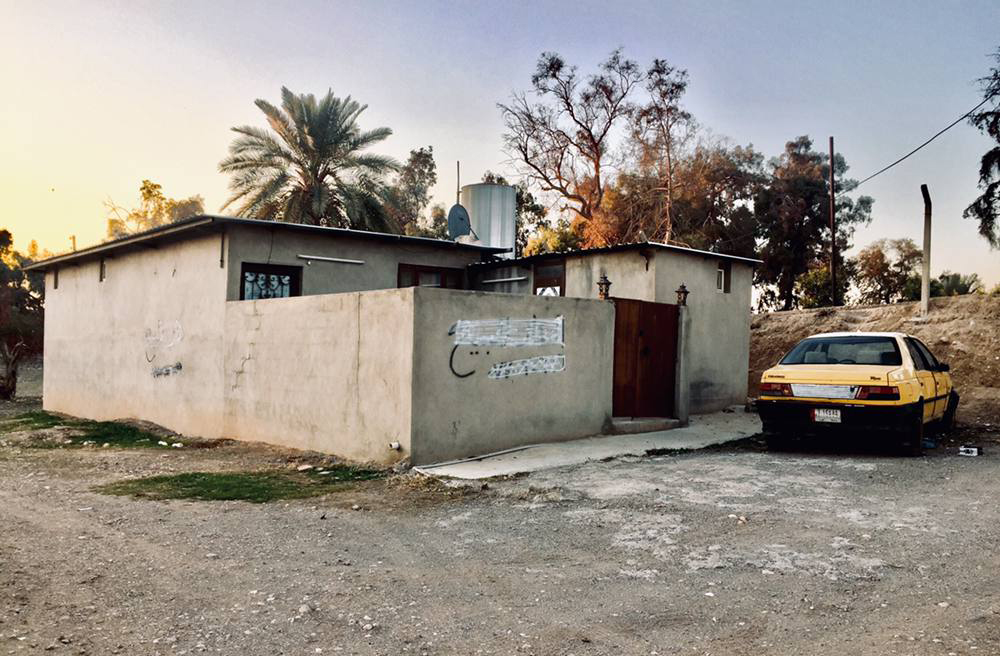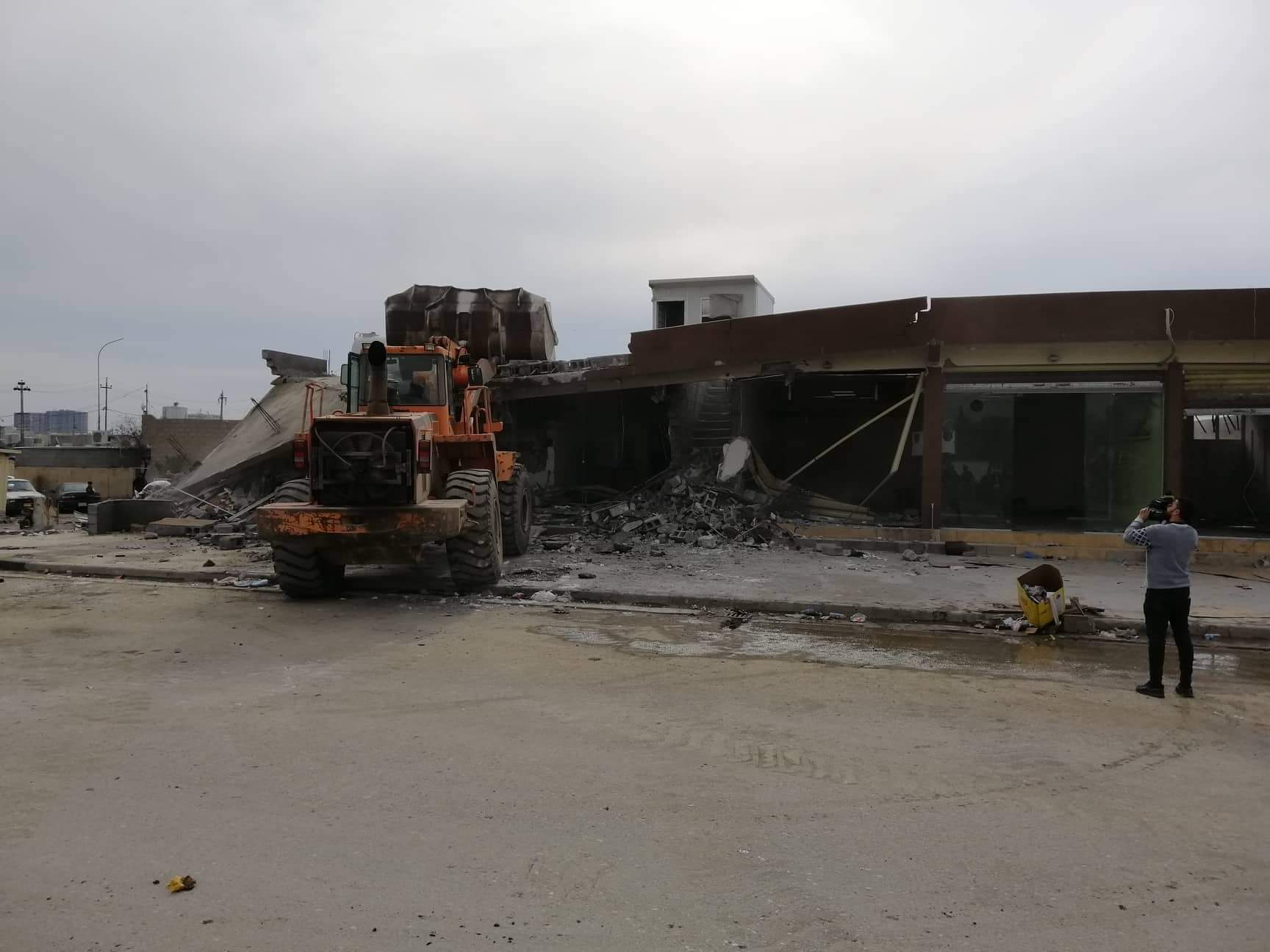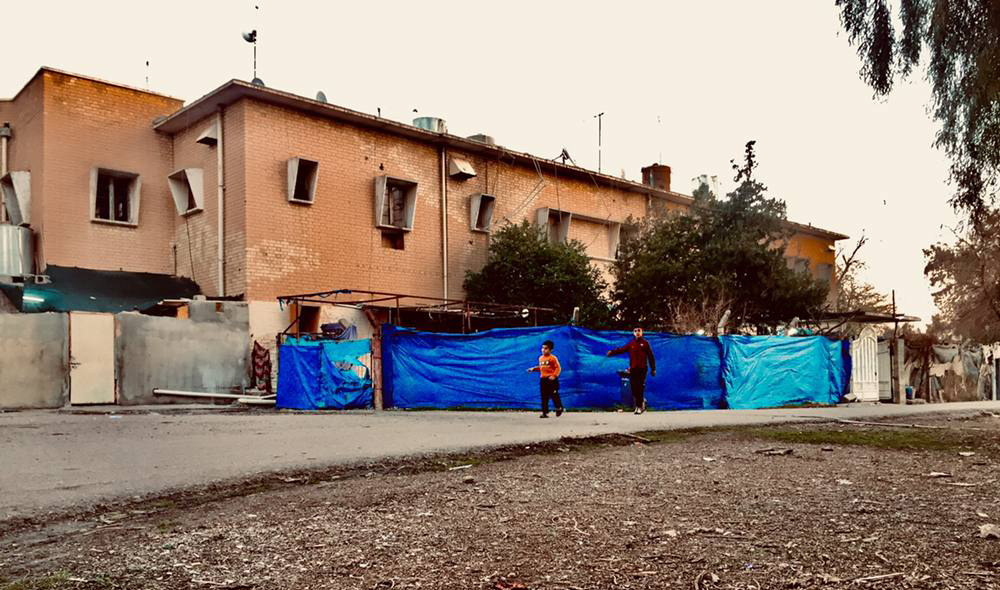Irfan Qadir faces a difficult choice, either to challenge the local administration of Kirkuk or to live on the street because he built his house illegally.
Qadir's house is located in the Al-Musaiyajah bloc in Arafa neighborhood in the center of Kirkuk city. The land on which his house was built is a property of the state-run North Oil Company of the Iraqi Ministry of Oil, which decided, after years of silence, to claim it.
The decision of the North Oil Company to recover the lands owned by it is about to destroy the nests built by Irfan Qader and dozens of other families in that neighborhood, some of which settled in that neighborhood for 19 years.
"I have returned to Kirkuk after 2003 and built two rooms here. I lead a difficult life full of suffering with my wife and children here," Qadir expressed his displeasure for the challenge he is facing.
The 250 families reside in Al- Musaiyajah have been notified more than once to evacuate because the North Oil Company intends to demolish it and restore the lands, based on a court decision dictating the ownership of these lands to the company and forcing the Kirkuk administration to implement the decision.
According to KirkukNow follow-up, the residents of that neighborhood refuse to vacate their homes unless they receive financial compensation or a residential plot for housing.
"If I had the financial means, I would have like other people built a house in a better place and would not have stayed here," Qader sobbed.
After 2003 and the fall of the Baath regime headed by Saddam Hussein, thousands of houses were built on state-owned lands yet without official permission in all of Iraq's provinces, including Kirkuk.
There are more than 60,000 houses and commercial buildings were built illegally in Kirkuk province, which ranks third after Baghdad where more than 130,000 units were built illegally built and 90,000 in Basra southern province, according to an official statistic obtained by KirukNow from the mayor of Kirkuk.
Following fall of Saddam regime in 2003, thousands of people expelled from Kirkuk and disputed territories have received plots of lands from the Kurdish parties ruling the region without being officially registered or permitted by local authorities.
Kirkuk administration provided basic services to some of the blocs but later it was stopped by Iraqi government. The local authorities gave notice of evacuation to the residents whom declined to leave unless compensated.
The northern oil-rich city of Kirkuk, 238 kilometers north of Baghdad, is an ethnically mixed province for 1.2 million Kurds, Sunni and Shiite Arabs, and Turkmen. It has long been at the center of disputed territories between Baghdad and Erbil.
Kirkuk is one of the main disputed areas in addition to Diyalah and Nineveh that a three-stage process outlined in Article 140 of the Iraqi constitution in 2005, stipulating normalization, a population census and a referendum on the status of the territories, was drawn to put an end to Kurdistan region government KRG and Iraqi Federal government dispute over these areas.
Kurdish parties were ruling Kirkuk and most of the disputed territories till 2017 when Iraqi army ousted Kurdish Peshmerga, following a referendum by the KRG voted for independence of the Kurdish region in Iraq including Kirkuk.

Kirkuk, October 2020: A woman cries in protest against the efforts to demolish her house as part of a campaign to remove violations and demolish illegally built houses in the Celebration Square area. KirkukNow
Mustafa Nuraddin, director of violations division in municipality of Kirkuk, said, administration of Kirkuk is dictated to remove violations according to an official letter, whether the violation is a commercial or residential building. He added that thy resort to Real Estate Registration Department to determine which state department is owner of the public property.
The Violations Division in Kirkuk municipality consists from six departments that undertake the task of monitoring in different areas of the province and informing the Property Division in the Kirkuk Administration Bureau of any violations.
Most of the campaigns implemented by Kirkuk mayor office in coordination with the municipality and security forces to remove abuses results in protests by citizens, which and even escalates to tension and clashes, as happened last year in Al-Musaiyajah.
As a result of these protests, the security forces arrested two people, who were referred to court, before being released on bail.

Kirkuk, January 2022: Houses built illegally in Al-Musaiyajah neighborhood.
Irfan Qader, who was arrested at the time, said the court issued an arrest warrant against me on the pretext that I did not evict my house, and was released on bail of 10 million Iraqi Dinars," but the case file has not yet been resolved.”
"I am now between two options, the best of which is bitter. If I am referred to court again, I will be imprisoned and if I do not comply with the court, the person who sponsored me will be imprisoned," Irfan said.
The problem of Al-Musaiyajah is repeated in several other slums: protests, demonstrations and clashes occurred, while some of the houses, according to follow-ups by KirkukNow belong to families that were deported within the framework of the policy of “Arabization” during the rule of the Baath regime and returned to their areas after the fall of Saddam regime in 2003.
The director of the Division for the Elimination of Abuses in the Municipality of Kirkuk said, "After the events of October 16, 2017 (the return of the Iraqi army to the disputed areas after the independence referendum of the Kurdistan Region), the percentage of abuses increased, so our campaigns continue daily in all neighborhoods, without discrimination, whether those inhabited by the majority from the Kurds, Arabs or Turkmen, so that they do not say that we differentiate between them.”

Kirkuk, January 2020: the demolition and removal of a number of illegally built stores downtown. KirkukNow
Each of the neighborhoods of Shoraw, Sona Goli, Darwaza, Al-Faylaq, Barutkhaneh (formerly camps owned by the Ministry of Defense), Panja Ali (the neighborhood lands owned by the Ministry of Oil), are part of the illegally built neighborhoods, along with tens of thousands of built houses within the legally registered neighborhoods, including parts of the Corniche area, Baghdad Road, Al Urubah, Rahimawa, Celebration Square and several other neighborhoods.
In November 2019, the General Secretariat of the Iraqi Council of Ministers decided to entrust the infringed residential lands, outside the basic designs of cities in all governorates of Iraq, after assessing the value of the land by specialized committees. The decision stipulated the payment of an amount of 5% of the piece allowance, and the rest in installments for a period of twenty years. However, this decision has not been implemented in any Iraqi governorate so far.
"In some cases, we intended to demolish several illegally built houses, but the residents of those homes prevented us from demolishing it, so we had to refer their cases to Kirkuk court to issue a decision."
The issue of removing abuses in Kirkuk remains pending due to citizens' protests, at a time when Kirkuk administration refuses to implement service projects in it, such as water, sewage and roads.
Irfan Qadir, whose case is pending at court does not know what will happen to the fate of the overrun houses in Al-Musaiyajah, has decided to bow to the pressures of the Kirkuk administration.
“I have to vacate my house so that I do not face trial and prison sentences because no one defends us.”





